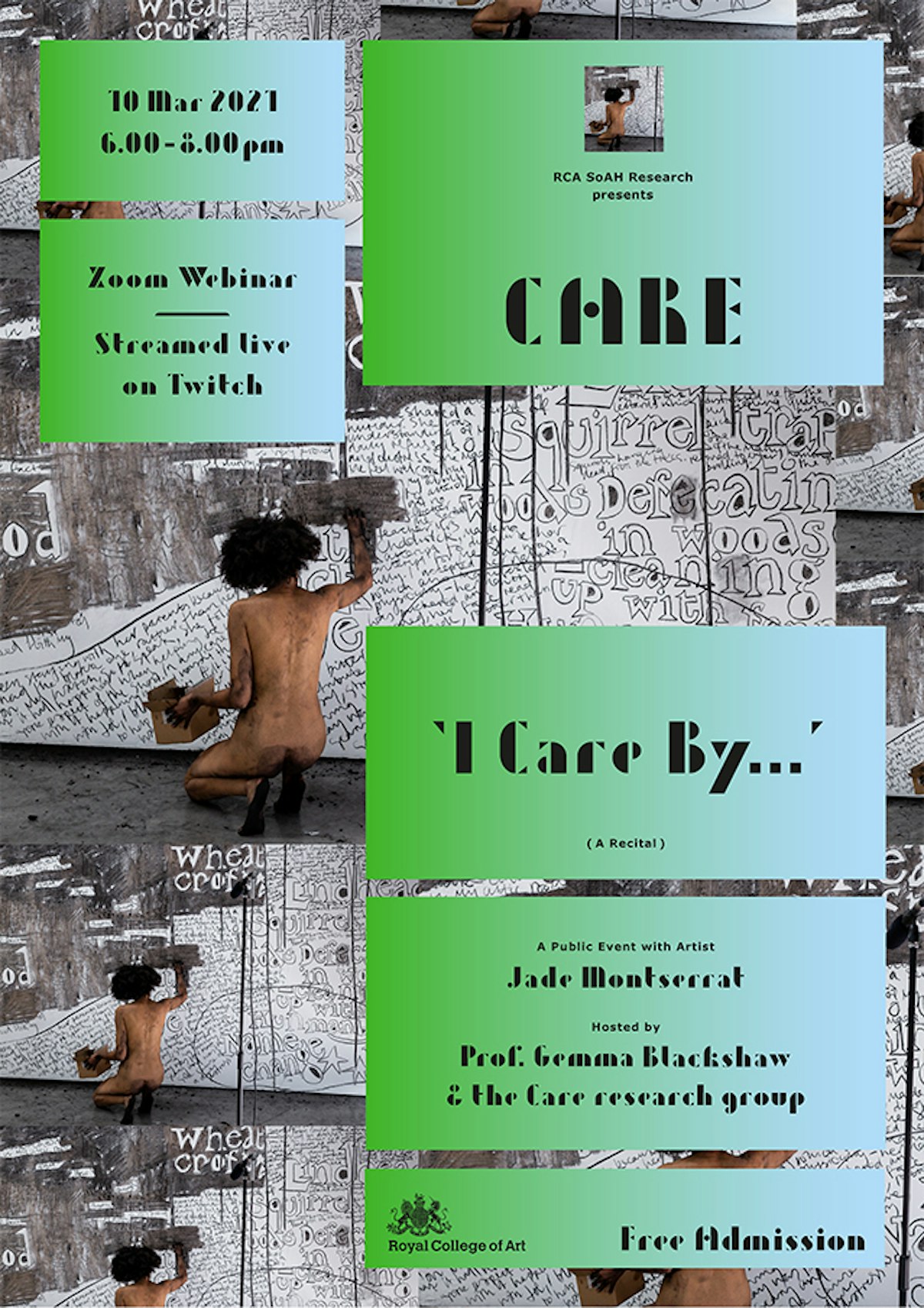'I Care By...' (A Recital)
To recite is to read aloud, to repeat from memory, to declaim (meaning to utter or deliver in a rhetorical or impassioned way), to narrate, and also, to allege. A recital is defined as an enumeration or listing of names, facts, events, doings – happenings to be shared, reckoned with, remembered. A recital also describes a performance of a programme of music by a soloist or small group. Both definitions depend on an audience, on witnesses, watchers, listeners.
SoAH Research Presents offered a recital by artist/soloist Jade Montserrat, a performance which invited the audience to reflect upon matters close to her heart concerning race; the vulnerabilities of bodies; the tactile, sensory, healing qualities of drawing and writing; the structuring of care within institutions; and care as a method for arts and humanities research. The performance was participatory. Audience members were invited to attend with whatever materials for drawing they had to hand, and to engage in a series of exercises which centred upon practices which Jade encouraged them to entangle, including drawing, breathing,reading, listening, writing and vocalising.

Reclaiming the Body: Jordan Baseman's A Different Kind of Different
|

Care: New Research Group at RCA London
Beginning of Care, a weekly research seminar convened by Blackshaw at the Royal College of Art, London. Thinking through care in its many forms – of people, histories, pedagogies, spaces and places, of the objects, papers, personal effects and exhibition experiences attended to by the curator/conservator (guardian; carer) – it activates the verb ‘to care’ as a methodology for arts and humanities research. How, it asks, might we approach the research practices of reading, writing, looking, assembling, listening, documenting, creating, remaking, performing, curating, and making public from a position which prioritises the trans-subjective relations that are at the heart of care, that ask us to feel, to take time, to tend to, to keep safe, to hold, to heal, to re-memorialise, to repair?